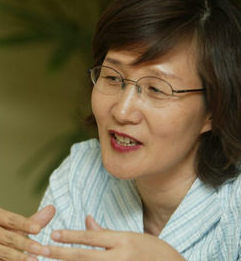 |
The families of those eight executed men have suffered immeasurably for the past 32 years, and they have demanded that the Grand National Party’s Park Geun-hye apologize on behalf of her father, president Park Chung-hee, the man ultimately responsible for their murder. Since the ‘not guilty’ verdict was handed down, however, Park has said only that it was "merely a court decision." This comes after her remark before the retrial that, even if the case were reopened, it should be something looked at in strict accordance with the law. The situation has reminded me of a newspaper article I read while visiting Cambodia a few days ago. The Khmer Rouge’s "Brother Number 2," Nuon Chea, second in command under Pol Pot, denied in a Phnom Penh Post interview published January 12 that genocide had occurred, or that he had ever ordered or received reports of the use of torture and execution. Norbert Klein, who has lived in Phnom Penh for the last 17 years and publishes a newspaper there called The Mirror, says that while he has lived in the city a long time, he still feels a certain distance from Cambodians, that they never fully open their hearts to others. "I think it’s because of the scar that remains from the Khmer Rouge era, when even parents and children couldn’t trust each other." He said he thinks the past has to be dealt with before people can open their grieving hearts. An international court is going to begin looking the past in the face this February in Phnom Penh. The generally held view is that this is not going to be easy. As seen in the Nuon Chea interview, you can’t be sure things are going to go as they should. It is never easy for countries that have dark periods in their past to deal with the questions that remain. It is especially difficult for the perpetrators to admit their wrongs and apologize. And so, since Park was not a party to what happened, she might feel wrongly accused when people say she needs to apologize just because she is the perpetrator’s daughter. However, Park has used her father’s legacy to the greatest extent possible in the course of cultivating her political strength. She has made her father’s political base, the Yeongnam region, that of her own, and, invoking the name of her father, she has embraced the support she subsequently received. Even under inheritance laws, you must accept the debts as well as the assets. If Park wants to be a true leader for South Korea, it would behoove her to pay off her father’s debts and begin anew with no weight on her shoulders. I will continue to sincerely hope for her apology. Please direct questions or comments to [englishhani@hani.co.kr]





